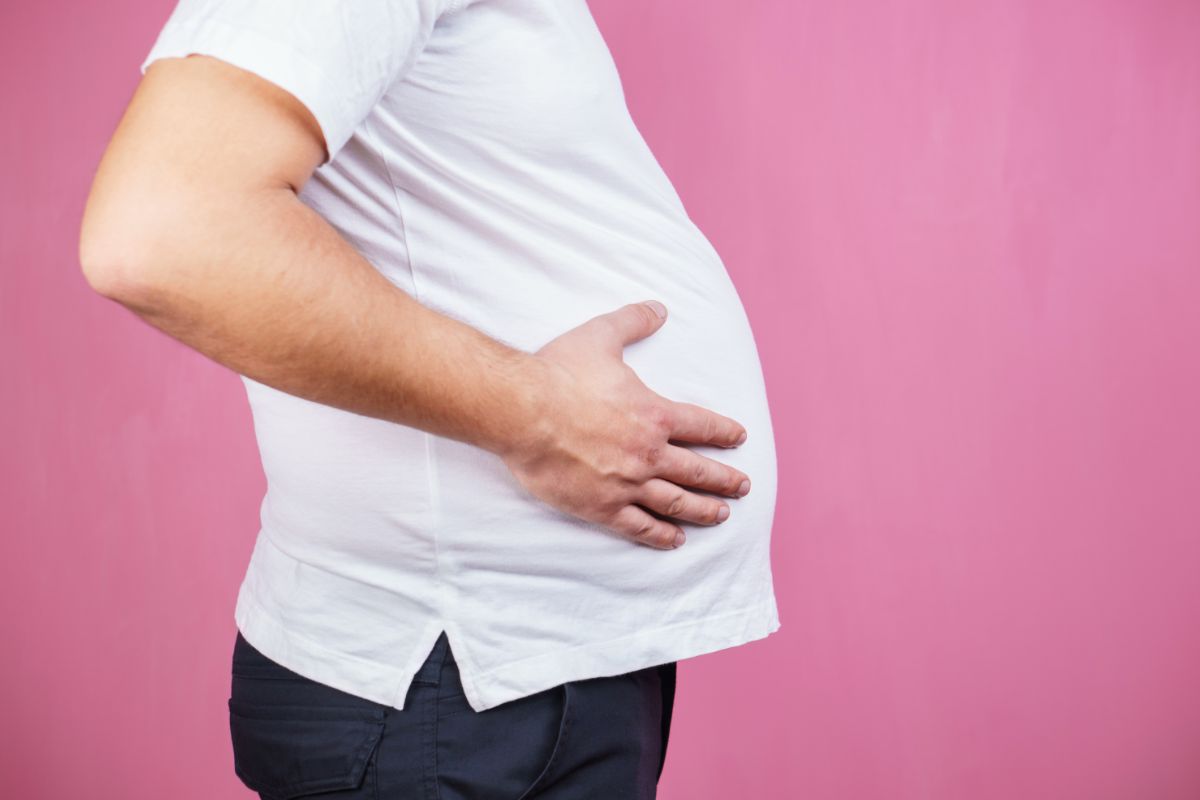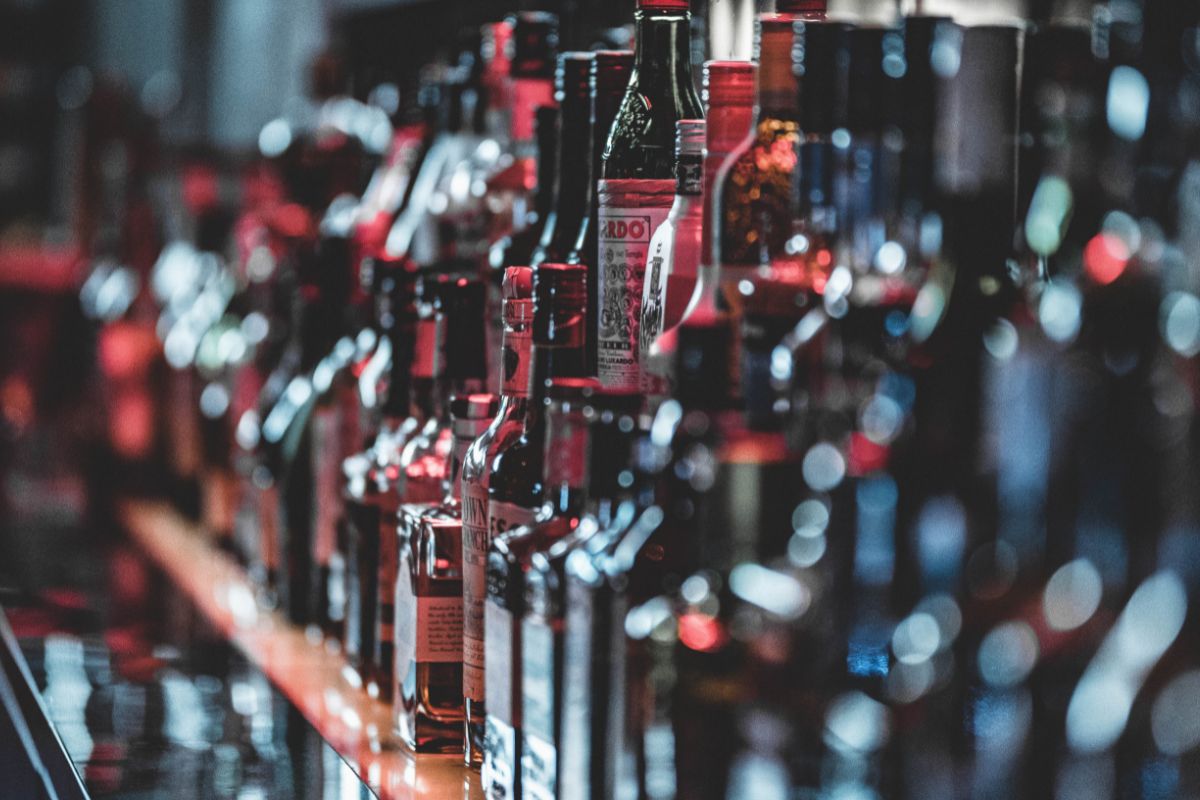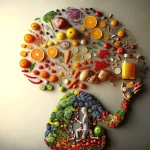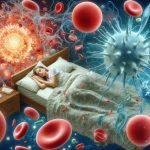Most people would say they enjoy a drink from time to time, and there’s nothing wrong with that when it is in moderation and healthy balance.
However, too much alcohol can have detrimental effects on the human body. One such effect is known as beer belly.

While you may have heard about this, or seen a person who drinks a lot of alcohol with a large belly, is there any scientific evidence for this?
The short answer is that while alcohol might contribute to weight gain, it may not necessarily cause it. Although some people claim differently.
Our guide today examines if there is any truth to this claim. We’ll look at whether beer belly is real and if alcohol really causes weight gain.
Read on to learn more.
What Is “Beer Belly”?
Beer belly refers to someone’s stomach that is larger, usually over the beltline and often associated with people that consume a lot of alcohol.
The belly shape usually “droops” over the beltline and is much rounder than it should be.
Does Alcohol Make Your Belly Bigger?
Stomach enlargement is usually caused by one of three main factors:
- Pregnancy
- Poor caloric ratio
- Health condition such as a tumor or bloating
The fact is that alcohol has very little nutritional value.
It is usually very high in calories due to either the inclusion of sugars directly or due to the mixers such as Coca-Cola or other soda.
These are usually high in sugar. Consuming too many calories and not burning them off causes weight gain.
This is because calories are a measurement of energy, and if we do not burn the energy that we consume – we store it as fat.
Fat stores all over the body, but most commonly, fat will be stored around the waistline and stomach areas.
However, while alcohol may have a high caloric value – there’s more to it than just alcohol causing weight gain.
Let’s take a look at some of the other reasons.
Alcohol And Food
Many people will be familiar with the relationship between alcohol and food. In fact, many foods and alcohols are marketed to be “paired” together.
However, generally people eat junk food or “bad” food when they are drinking, or the day after.
There are several reasons why people may eat when drinking.
First, researchers suggest that alcohol may affect the nerve cells in the brain’s hypothalamus which results in a huge increase in appetite.
Second, when people consume alcohol whilst on a night out, they are usually in the vicinity of junk food outlets and surrounded by such temptation which they may not have access to at home when they are not drinking.
Third is a more complex one. Israeli scientists have suggested that alcohol can increase the sense of smell – which not only may contribute to an intoxicated person being tempted towards some foods, but also make the food taste much better.
This in turn can lead a person to return again and again due to their previous experience.
Finally, it is common for people to eat junk food the day after drinking as “hangover cures”.
While these foods do not “cure” hangovers, they have been known to help some of the symptoms associated with hangovers.
Put this with the lack of motivation to make a healthy meal, the increase in a sense of smell due to alcohol still being present in your body and the increase in appetite – you’re very likely to eat junk food.
Additionally, as you are unlikely to burn off these calories while hungover at home – this will contribute to weight gain.
Alcohol And Inhibitions

Alcohol can lower your inhibitions and cause you to do things you would not normally do.
One thing that many people do due to being intoxicated is drink more alcohol.
Of course, the more alcohol you drink, the more calories you will inevitably consume and therefore this will contribute to weight gain.
Alcohol’s Effects On Fat Burning
Alcohol has been shown to prevent fat from metabolizing in the liver and in turn, this can lead to more fat and more colesterol.
In fact, alcohol has a serious effect on fat and calorie burning overall.
It’s been suggested that the body will prefer to burn alcohol as a fuel in the body rather than fat if it is present.
In other words, when looking for a fuel source – the body will wish to process alcohol first as a priority.
This is seriously detrimental to any fat burning and therefore will contribute to a beer belly!
Alcoholism And Mental Health
People who drink too much alcohol may suffer its detrimental effects on mental health.
Alcohol is a depressant and can contribute to conditions such as depression or anxiety.
As a result, many people will often hide away from others and stay at home. They may also have a serious lack of motivation to do anything.
These will lead to a sedentary lifestyle which means that not enough calories are being burned – which will contribute to weight gain.
Does Beer Belly Go Away?
A beer belly can be gotten rid of in two ways. First, bloating and water retention are often the first two things to reduce within the week following drinking.
These two things will significantly contribute to the shape of a beer belly!
Next, you will need to abstain from alcohol for a while and take part in a healthy diet and plenty of exercise – paying attention to your caloric intake and burn.
If you can do this, your beer belly will soon reduce! It just takes time and commitment.
The Bottom Line
While alcohol is unlikely to be the main contributor to weight gain, it can be responsible for many of the reasons that weight gain occurs – but don’t panic, it can be reversed with a healthy diet and exercise.
- Understanding Male Reproductive Health: A Complete Guide - February 2, 2025
- Simple Healthy Skin Habits for Radiant Skin - December 6, 2024
- Unlocking the Connection Between Nutrition and Mental Health - December 3, 2024








